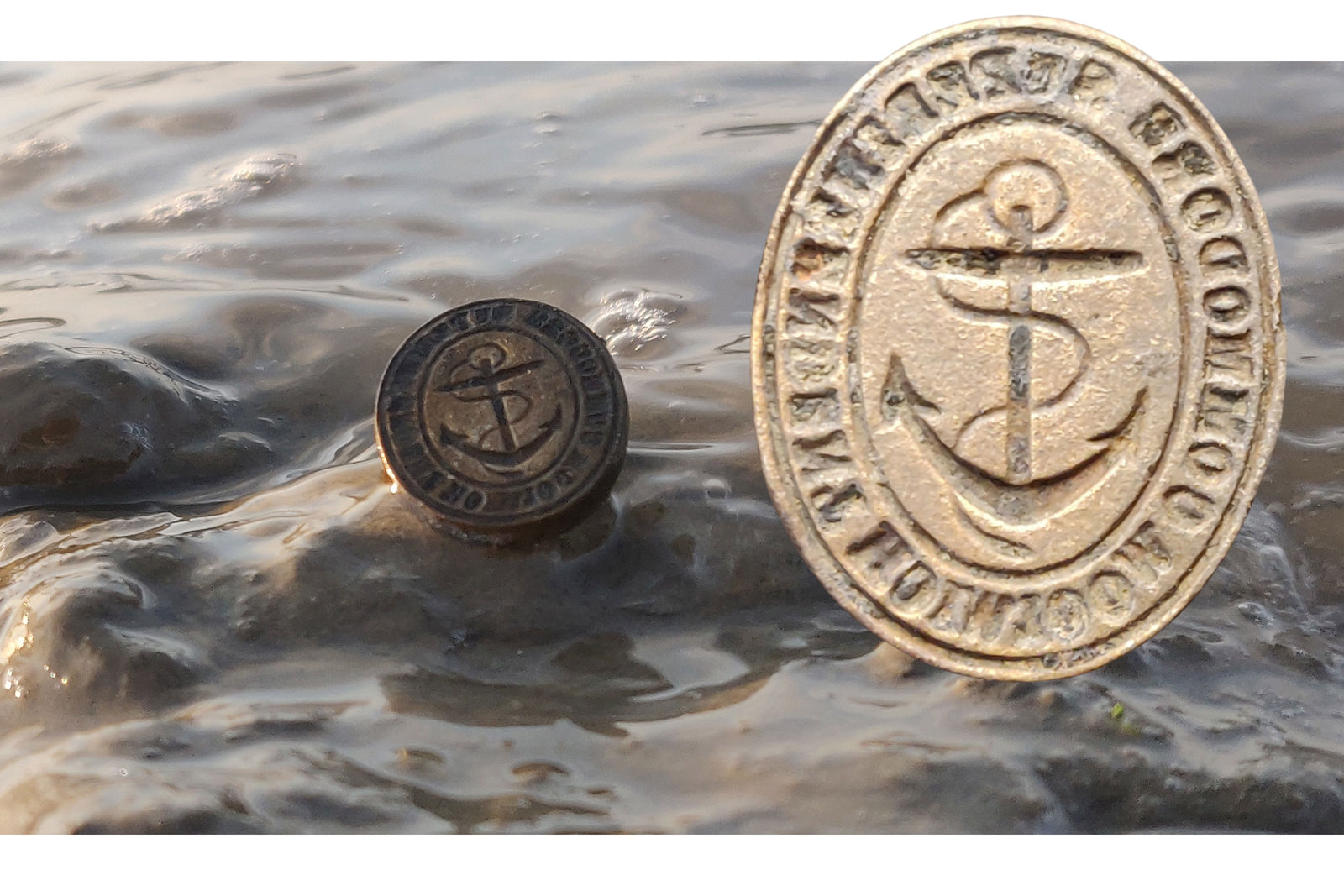Many of my Thames mudlarking finds are very small, but this doesn’t mean they don’t have a big story to tell! Last year I was delighted to find a 19th century wax seal stamp. The wooden handle has rotted away but what is left is the brass stamp embossed with a fouled anchor. The anchor is surrounded with the lettering “Commodore Superintendent Woolwich”.

It was an extremely windy and miserable day when I found it and at first, I thought it was a small naval button. The position of Commodore Superintendent at Woolwich Dockyard only existed between 1828 and 1853 and it is possible that all five of the Superintendents during that time could have used this stamp to seal their official letters and documents. According to the Finds Liaison Officer at the Museum of London, it would have been kept under lock and key and there would only have been one. During my research, I was delighted to find records of letters written by the Commodore Superintendent of Woolwich Dockyard to the Admiralty in 1852 relating to the HMS Terror and HMS Erebus, the missing ships which set out on the expedition lead by Sir John Franklin to find the Northwest Passage. The Erebus and Terror were refitted at Woolwich Dockyard before the fated expedition. To be able to link the find to such a significant event was very exciting.
Another tiny find which taught me a great deal is a small pewter button. As any mudlark or detectorist will know, buttons are a common find in the field and on the foreshore. They can however reveal so much information particularly if they are marked with a name, a business, or a family crest. I have spent many happy hours going down rabbit holes simply through researching a small button. One of my favourite button finds is one from Victorian times which would have once been attached to the uniform of a guard from the notorious Millbank prison in London, which opened in 1821 and closed in 1890.

One of the things Millbank prison was used for was as a holding facility for prisoners and convicts who were due to be transported to Australia among other places. As their time for transportation grew near, they were sometimes transferred to the prison hulks moored on the River Thames near Woolwich. I often wonder how this button came to be in the Thames. Could the guard have had a scuffle with a convict as he was taken by river in a boat from Millbank to the prison hulks in Woolwich. Who knows when this button popped off the guard’s uniform and sank to the bottom of the murky depths of the Thames, but what stories it could tell if only it could speak!
As you can see, one of the great things about mudlarking is that you learn so much miscellaneous information you would never generally find out about, simply through researching your finds.
To mudlark on the River Thames you need a permit from the Port of London Authority. Currently no new permits are being issued. Keep an eye on their website for updates.
About Tideline Art
Meet Nicola White, mudlark and creator of Tideline Art. Nicola regularly posts videos to her YouTube channel, showcasing her incredible treasures and finds. Over the course of the next 12 months, Nicola will be sharing her fascinating stories and finds with us on the Muck Boot blog!
When I first moved to London over twenty years ago from Cornwall, I had no idea that the River Thames would open up such a fascinating and magical world, and that when the tide went out, its muddy banks would reveal to me a wealth of historical secrets and characters from the past. I was used to beachcombing on windswept beaches in Cornwall, but it never occurred to me that something similar might be possible in an urban setting such as London.
More on Mudlarking
Stories from the River Thames
A Rare Tudor Coin
An Ancient Bottle
Related Product
Mudlarking Wellies




